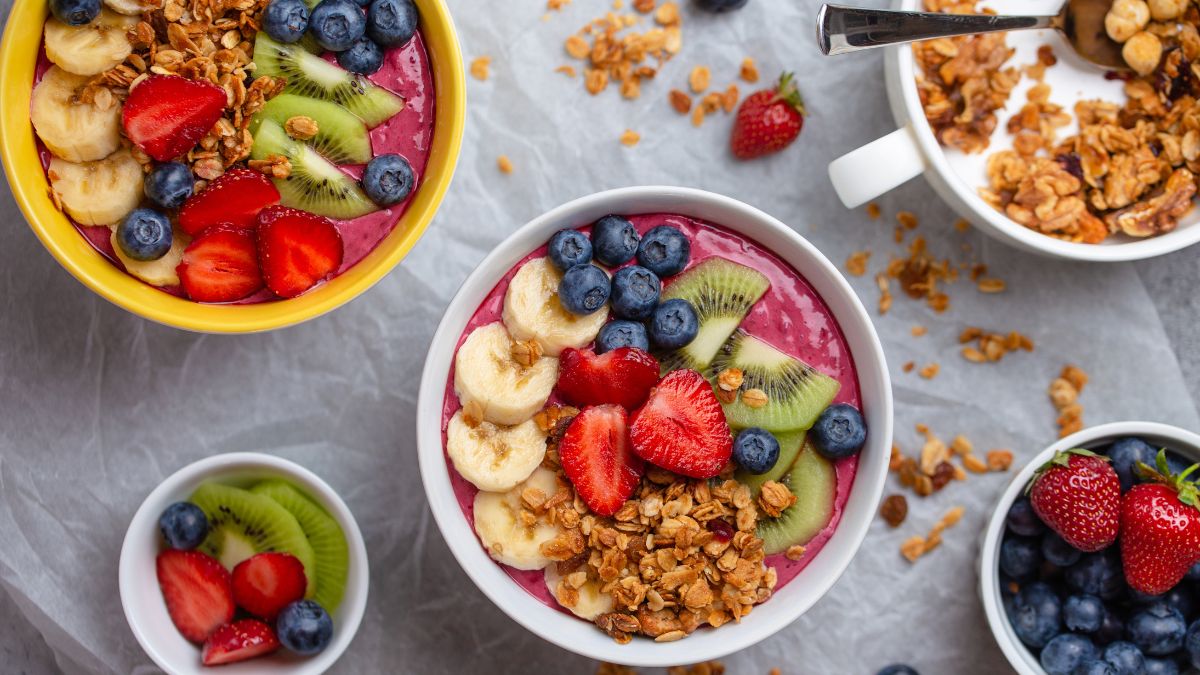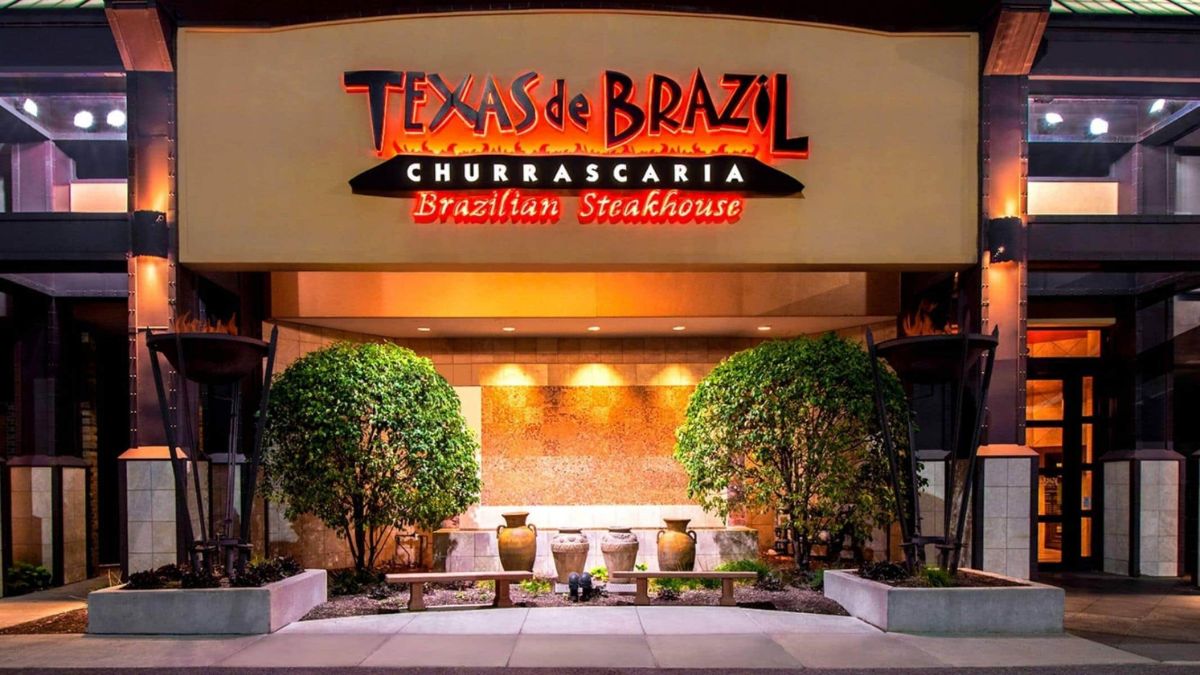Acai bowl, anyone?
Ah. I can remember the last time I held one at SoBol, and it was so satisfying that I wanted to have it every day!
Good thing SoBol has great options for vegans.
SoBol is your go-to spot in 2025 for delicious acai bowls, expertly topped with vibrant fresh fruits and homemade granola. Featuring nutrient-rich acai berries native to Central and South America, these bowls deliver impressive health benefits with every bite. What sets SoBol’s acai bowl apart is its commitment to being vegan-friendly, gluten-free, and Kosher-certified—making it a fresh, wholesome choice for everyone.
Excited yet? Let’s dig in!
Who Is SoBol?
It was in 2012 when Jason Mazzarone, who was surfing then, found an acai bowl stand at a beach in San Diego, California.
After his culinary school in San Diego, Mazzarone moved back to his hometown in Long Island, New York, where his family’s Italian ice house business was booming.
But the spark of the acai bowl was still in his mind. He made some acai bowls for his family and decided to start Acai Cafe that year.
In 2014, SoBol was officially incorporated after Mazzarone teamed up with a longtime family friend, Jim Kalomiris.
Kalomiris has over 20 years of experience in restaurant management, construction, and real estate. Since then, SoBol has rapidly grown into more than 50 locations in different states.
It started franchising in 2016 and has continued its goal of serving healthy and delicious acai bowls to local communities.
What Is Acai?
Acai berries, or Açaí, pronounced Asaˈi, are the fruits from the Acai Palm Tree, which is native to the Amazon in Brazil.
The Acai tree is mostly found in floodplains and swamp areas in the Amazon, where the fruits became a staple food of the locals in the 18th century.
Acai contains yellow flesh, which is secured by its dark purple skin. It contains pits like olives and apricots and is a drupe.
However, the fruits are commonly referred to as berries rather than a drupe.
The acai berries are round, small, and black-purple in color and have been considered a healthy food since the 1990s.
While the tree bears the acai berries year-round, the fruits can’t be harvested anytime because Brazil rains very often.
Acai berries’ shelf life is short, and only in the Belem community are the fruits eaten fresh.
All exported or locally transported fruits are processed into a pulp within 24 hours of harvest.
Acai is only produced in the Northern region of Brazil and is the only country in the world to produce berries without competitors.
Despite the growing demand for acai berries, the production remains almost the same, especially since the acai palm trees are only grown in swamps and floodplains in the Amazon.
The acai berries are harvested manually, with farmers climbing the tall, slender acai palm tree just to get the fruits.
Acai palm trees can grow up to more than 82 feet, dangerous to most farmers when done incorrectly. This is also one of the reasons why acai berries are not harvested during the rainy season.
The name Acai is a Portuguese word ĩwasa’i, meaning “fruit that cries or expels water.”
Local folklore says that the name was derived from the name of Northeast Brazil’s Belem community, chief Itaqui’s daughter Iaçá.
The legend says that it was the chief who decided to sacrifice all newborns’ lives for them to save food and survive famine.
Later, his daughter Iaçá gave birth to a son, one of the newborns to be sacrificed. She wept and suddenly woke up in the wee hours looking at her son, smiling at her under a palm tree.
She tried to go to him, but he disappeared, and she hugged the tree and wept.
Iaçá was found dead the following day, hugging the palm tree with her eyes fixed on the berries of the palm tree. But she bore a smiling, radiated face while gazing at the tree’s fruits.
His father, Itaqui, ordered him to check the berries and found the fruits nutritious. So he stopped the childbirth ban and thanked the gods for ensuring his people’s future through this discovery.
The tree, as well as the berries, were named Açaí after Iaçá, which is spelled backward.
Vegan Options at SoBol
Because SoBol founder Jason Mazzarone aims to deliver delicious and nutritious acai bowls, vegan options are also important.
The acai berries are vegan-friendly since they’re derived from the acai palm trees, but you also need to pay attention to the toppings and other ingredients.
But the good thing about SoBol is that its menu is fully customizable, which means you can ask for whey and honey alternatives.
For instance, you can ask for plant milk like coconut, almond, oat, or apple juice. Everything vegan is possible at SoBol.
You just have to ask for vegan alternatives available on request. According to SoBol, their homemade granola is also allergen-friendly.
Their offerings are gluten-free and Kosher-certified, making them one for the books!
Here’s a list of their bowl offerings and other healthy snacks that are all customizable.
- Fruit Bowls
- Pumpkin Cookie Butter Bowl
- Green Bowl
- Pitaya Bowl
- Pineapple Mango Bowl
- Spirulina Bowl
- Coconut Bowl
- Acai Bowl
- Superbowl Saves! 10 Acai Bowls
- Super Smoothies
- Valentine’s Smoothie
- Peach
- Super Green
- Pitaya Plus
- Spirulina
- Coconut
- Watermelon Lime
- Pumpkin Spice
- Strawberry Banana
- Very Berry Smoothie
- Acai Berry
- Pineapple Mango
- Peach
- Waffles and Oats
- Homemade Granola
- Overnight Oats
- Homemade Chia Pudding
- Coffee and Teas
- Locally Roasted Hot Coffee
- Locally Roasted Hot Loose Leaf Tea
- Locally Roasted Cold Brew
- Beverages
- Kombucha
- Cold-pressed Juice
- Chlorophyll Water
- 1 Litre Essentia Water
- Soups
- Three Bean Chili
Pro Tip: All these offerings listed above are customizable, but always ask for clarification. You can even ask how to make your bowl by sequence if need be.
How Healthy Are Acai Berries?
The acai palm tree is known for its health benefits from head to toe. From its leaves, fruits known as acai berries, and hearts of palm to trunk wood, the tree definitely wears many hats.
The acai berries are among the important food sources of the indigenous people in Brazil, specifically in the Amazon region.
They’re known as Brazilian superfruits.
The fruits became popular worldwide because of their health benefits, especially the rich antioxidants they bring.
The acai berries’ nutritional data are limited, as per the USDA, especially since the figures are only based on the products that contain the berries.
But for 100 g of frozen acai berries puree, here’s what you can get.
- Calories. 70
- Fat. 5 g
- Saturated Fat. 1.5 g
- Carbs. 4 g
- Sugar. 2 g
- Fiber. 2 g
- Vitamin A. 15% of the Recommended Dietary Intake (RDI)
- Calcium. 2% of the RDI
A Venezuelan study also suggests that acai berries contain significant amounts of minerals, tannins, anthocyanins, and polyphenols.
Minerals include copper, chromium, manganese, zinc, phosphorus, iron, and potassium.
According to the study, acai berries have high lipids, which help regulate hormones, transport fat-soluble nutrients, and many more.
One of the most powerful plant compounds found in acai berries is anthocyanins, which bring antioxidants and give the berries their dark purple color.
However, it’s also worth noting that drinking unprocessed acai juice can lead to American trypanosomiasis or Chagas Disease.
Also, when you have MRI, the consumption of acai berries can affect your MRI results, according to National Center for Complementary and Integrative Health (NIH).
So in moderation, acai berries are a healthy part of your vegan diet.
Acai Berries Uses
Acai berries are considered Brazilian superfruit, loaded with nutrients and other health benefits.
As a staple food in the Amazon region, acai berries have been used in many different dishes, like the delicious acai bowl at SoBol.
Acai mostly comes in three forms: powder, juice, and puree.
While acai juice is high in sugar, it lacks fiber and is loaded with antioxidants. The powder offers concentrated nutrients, providing fats, fiber, and other plant compounds.
The most recommended form is acai puree, mostly used in many fruit bowls, such as in SoBol, and is topped with fresh fruits.
Acai is also an ingredient in some cosmetic products, grain alcohol, and dietary supplements.
Acai Oil is also used in some dishes, such as a salad dressing.
Its palm leaves also make baskets, mats, hats, roof thatch, and broom. The trunk is also pest-resistant and can be processed to yield dietary minerals.
The heart of the palm is also used in a salad and can be eaten alone.
The Bottom Line
SoBol has a lot of vegan options when it comes to its specialties, acai bowls, and smoothies. Its menu is fully customizable and is especially recommended for vegans.
This health-forward brand offers vegan alternatives to whey and honey, which are readily available.
But if SoBol isn’t accessible to you, don’t fret. You can find Pulp Juice & Smoothie Bar, which has more than 40 locations in the U.S.
They also offer acai bowls and smoothies made vegan on request. I wrote about this store in this article if you wanna check it out!




